- Home |
- About Us |
- Services |
- Our Doctors |
- Resources |
- Contact Us |
- Book Appointment
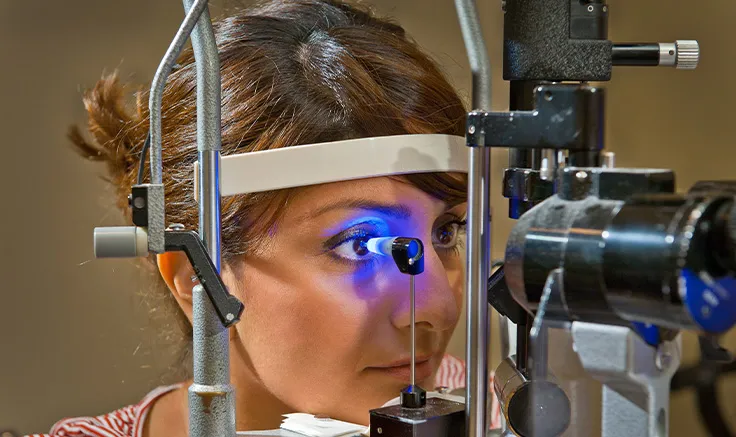
What is Glaucoma ?
At Kailash Eye Care, we offer comprehensive glaucoma services to help manage and treat this serious eye condition. Glaucoma is a leading cause of blindness, often developing without noticeable symptoms, which is why regular eye checkups are essential for early detection.
Our expert team in Patel Nagar, Delhi, utilizes the latest diagnostic tools and treatment options to manage glaucoma effectively. Whether through medication, laser treatments, or surgical interventions, we tailor each treatment plan to your specific needs to help preserve your vision.
Book Appointment
Understanding Glaucoma: The Silent Thief of Sight
Glaucoma can be explained in simple terms:
Glaucoma isn't just one condition; it's a group of eye diseases that can slowly rob you of your vision without warning. Think of it like a silent burglar — it doesn't make noise until significant damage has been done.
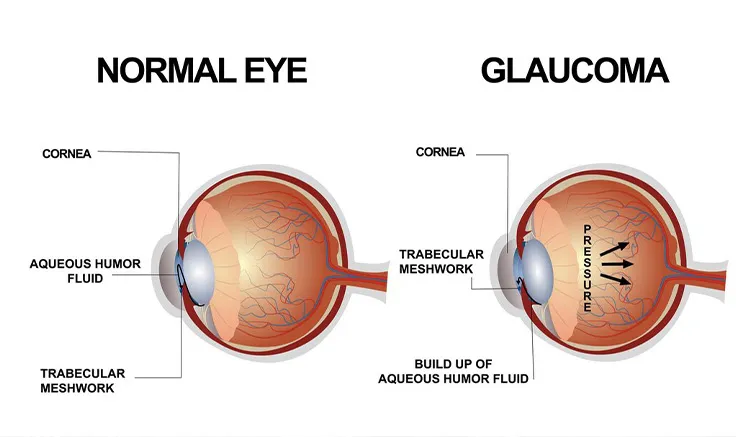
What’s Happening in Your Eye?
- Eye Pressure and Drainage : Your eye functions like a sink, requiring good drainage to keep pressure at the right level. When the drainage system is blocked or dysfunctional, pressure builds up, damaging the optic nerve — the cable that transmits visual information to your brain.
- The Sneaky Part : Glaucoma is often referred to as the "silent thief of sight" because symptoms are not noticeable until vision loss has occurred. That’s why regular eye exams are crucial.
Types of Glaucoma
- Open-Angle Glaucoma: The most common type, where pressure builds up slowly over time, often without noticeable symptoms.
- Angle-Closure Glaucoma: A medical emergency where the eye pressure increases rapidly, causing severe pain, headaches, and rainbow-coloured rings around lights.
- Normal-Tension Glaucoma: Even with normal eye pressure, the optic nerve can be damaged due to reduced blood flow.
Who’s at Risk for Glaucoma?
- Family History: Like diabetes, glaucoma can run in families.
- Age: The risk increases as you get older
- Ethnicity & Health Conditions: Certain groups are more prone to developing glaucoma, including people with a history of high blood pressure or diabetes.
Diagnostic Modalities
To assess the health of your eyes, we use:
- Eye Pressure Check: Like checking your eye's blood pressure.
- Nerve Health Evaluation: To monitor the optic nerve’s condition.
- Visual Field Test: Detecting any blind spots or vision changes.
- Detailed Imaging: Advanced cameras to capture clear images of your eye.
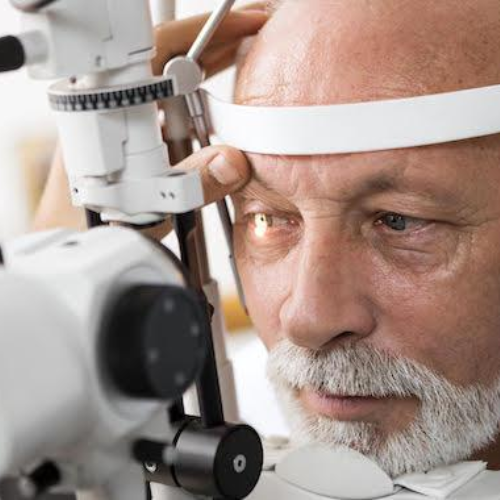
Treatment Options
At Kailash Eye Care, we offer a wide range of treatments, from simple medication to advanced laser therapies, tailored to your specific needs.
Eye Drops & Medication
These help control eye pressure by reducing fluid production or improving drainage.
Laser Treatment
We offer minimally invasive laser procedures to open drainage pathways or reduce fluid production.
Surgical Options
In cases where other treatments are ineffective, surgery may be necessary to create new drainage pathways or insert devices to help fluid flow.
Myths & Facts
- Myth: Only older people get glaucoma.
- Fact: Glaucoma can affect people of all ages, including children. Early detection is key, regardless of age.
- Myth: I’ll know if I have glaucoma because my eyes will hurt.
- Fact: Glaucoma typically has no pain, making regular check-ups essential for early detection.
- Myth: Having perfect vision means I’m safe from glaucoma.
- Fact: Good vision doesn’t guarantee protection from glaucoma. Regular eye exams are crucial.
- Myth: Once vision is lost to glaucoma, it can be restored.
- Fact: Damage caused by glaucoma is irreversible, but treatment can prevent further vision loss.
- Myth: Only people with a family history get glaucoma.
- Fact: While family history is a risk factor, anyone can develop glaucoma, even without a family history.
- Myth: All glaucoma treatments require surgery.
- Fact: Many patients manage glaucoma effectively with eye drops or laser treatment, with surgery reserved as a last resort.
Did You Know?
Glaucoma accounts for about 12% of blindness cases in India, but with early diagnosis and treatment, it’s possible to protect your sight. Regular eye exams are the best way to catch glaucoma before it causes irreversible damage.
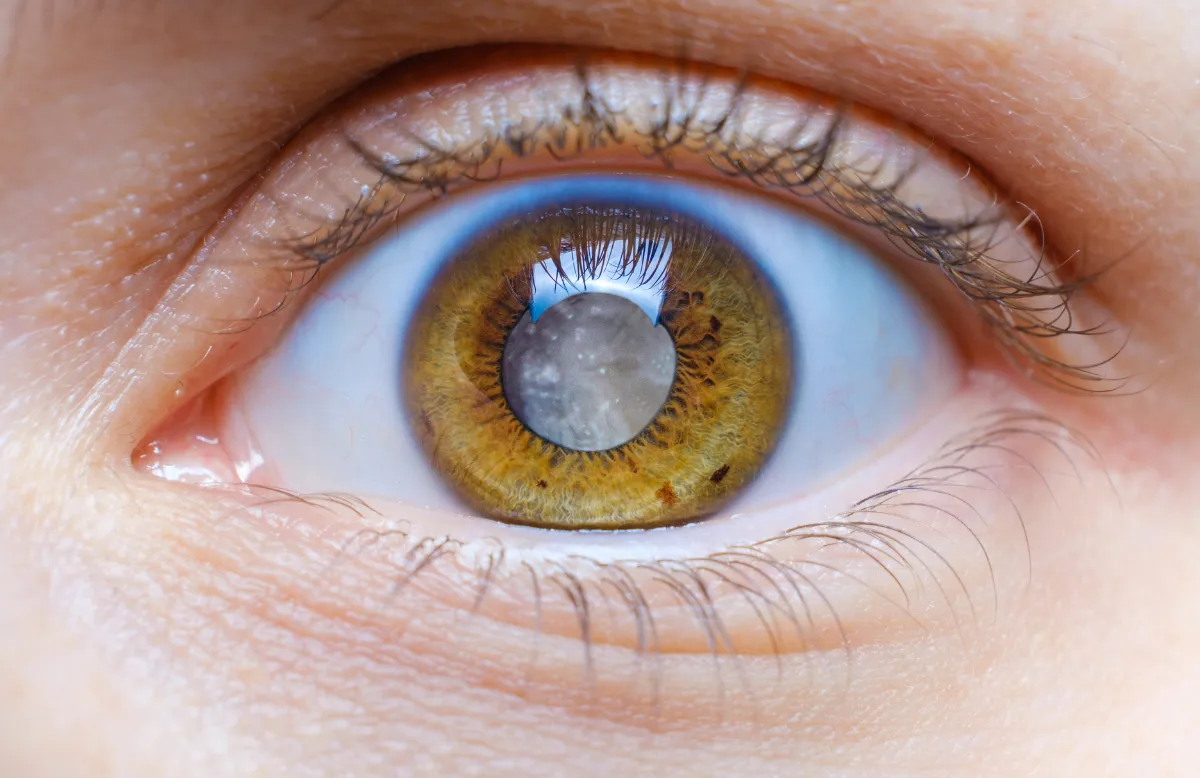
Book an Appointment Today at Kailash Eye Care!
Worried about glaucoma or need to schedule a routine eye checkup? Book your appointment today at Kailash Eye Care! Our expert team in Patel Nagar, Delhi, is dedicated to providing the best care for glaucoma patients, using the latest diagnostic tools and treatments Don’t delay—early detection is key to protecting your vision. Contact us now to book your glaucoma consultation and take the first step toward better eye health.
Book AppointmentWhy Choose Kailash Eye Care?
At Kailash Eye Care, we provide compassionate care backed by advanced technology and years of expertise. Whether you’re looking for routine glaucoma screening or advanced treatment, our team is here to support you every step of the way.
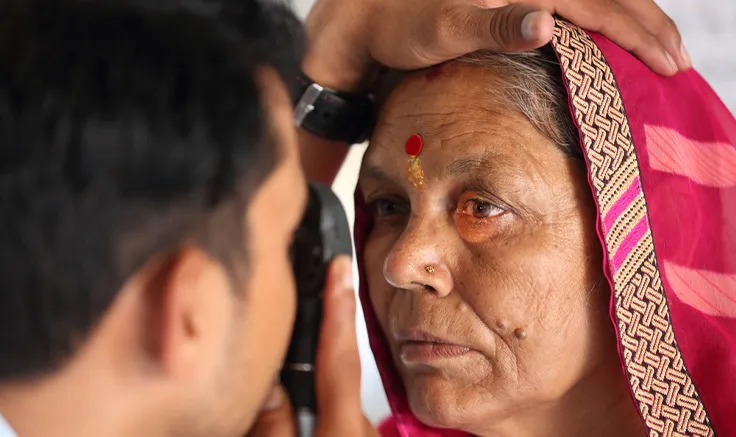
Patient Testimonials
Navigating Glaucoma was daunting, but Dr. Tuli's care made all the difference. Thanks to Kailash Eye Care in Patel Nagar, Delhi, for restoring my vision.
-Ananya S
The comprehensive care, from diagnosis to post-treatment, is commendable at Kailash Eye Care. Dr. Tuli is a beacon for Glaucoma patients like me!
- Rohit K.
I'm grateful for Dr. Tuli's guidance and effective treatment. His expertise shines bright!
- Meera G.
Frequently Asked Questions
We recommend getting checked by age 40, or earlier if glaucoma runs in your family. Regular eye exams are crucial for early detection.
Glaucoma cannot be cured, but with proper treatment, it can be controlled, much like managing high blood pressure.
Untreated glaucoma can lead to vision loss or blindness, which is why early detection and treatment are essential.
Many treatments, like laser procedures, take just a few minutes. Regular follow-ups are key to maintaining eye health.
Most side effects are mild and temporary, like redness or blurry vision, but these typically resolve quickly.


